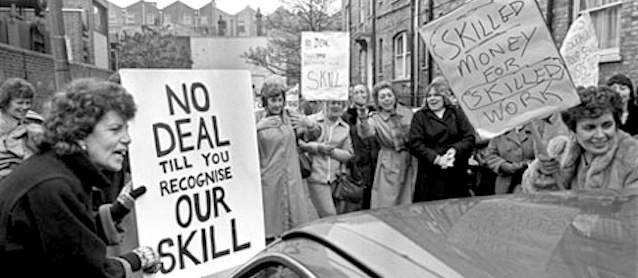In 1968, women sewing-machine operators at Ford Motor Company‘s Dagenham plant in the United Kingdom went on strike after the automaker refused to recognize their work as skilled labor and pay them the same as male employees.
Their auto upholstery strike was a landmark case in labor relations. Not only did it force Ford to temporarily halt manufacturing at the plant, it ultimately led to the Equal Pay Act of 1970 – one of the industrialized world’s first laws to end pay discrimination between the sexes.
Here, in their own words, some of the women who participated in the strike tell their story:
Watch the movie: In 2010, Sony Pictures and BBC Films partnered to release the award-winning film “Made in Dagenham” – a wonderfully produced dramatization of the women’s strike. Watch it for free here.

Recent Comments